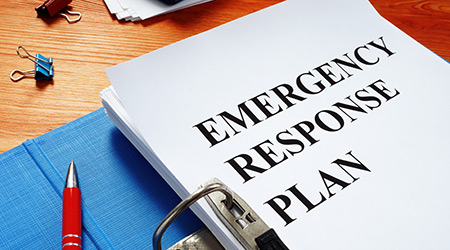
Contributed by TAL Global
It's right around the corner – the most dangerous time of the year. That's what police and security professionals call the period between Thanksgiving to New Year. Law enforcement agencies often deal with more emergencies during this period than any other time of the year.
Further, some corporate security consulting firms recommend that their clients take extra measures during the holidays to protect their staff, facilities, and data.
While holiday crimes can include shoplifting and break-ins, much more serious crimes such as workplace violence and active shootings also increase during the holiday season. If you are witnessing such a serious crime in progress, what would you do to ensure your safety, and the safety of others until the police arrive?
According to Johnathan Tal, Chief Executive Officer of TAL Global Corporation, an international investigative and security-consulting firm, here are ten things you need to do:
1. Run, Hide, or Fight. "These are always our first options. Do whichever is safely possible. "
2. Remain calm; avoid any quick or sudden moves.
3. When safe to do so, call 911.
4. Provide your name and the location of the event.
5. Tell the operator exactly what is happening.
6. Maintain your composure. "The operator's job is to understand the situation and send help. Emotions, screaming, or yelling gets in the way."
7. Tell the operator how many culprits and how many people are in the building.
8. If there are injuries, let the operator know this as well.
9. If the opportunity arises to flee the building, do so.
10. When the police enter the facility, keep your hands up and spread your fingers. "Remember, at this point, the police have no idea who is the culprit and who are the victims."
Tal adds, "there's much merrymaking during the holidays, [but] this could disguise a lot of inner conflict and stress, which can explode this time of year. Keep your guard up. Know what to do in an emergency.”
For additional emergency preparedness tips from CleanLink, click here.

 The Down and Dirty on Cleaning in Virus Season
The Down and Dirty on Cleaning in Virus Season How Surfactant Use is Expanding in Commercial Cleaning
How Surfactant Use is Expanding in Commercial Cleaning Operational Excellence Series 2025: Better Budgeting
Operational Excellence Series 2025: Better Budgeting